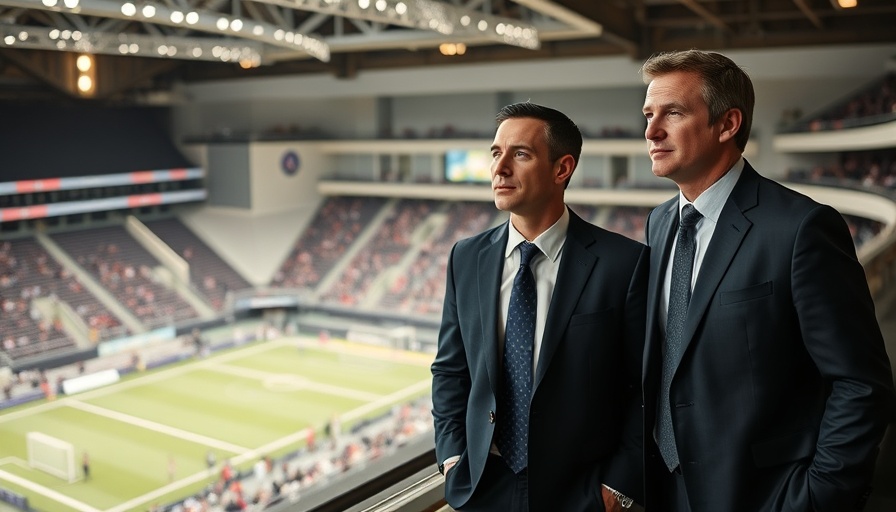
Trump's Presence at the U.S. Open: A Spotlight on Sports and Politics
As the U.S. Open Finals unfolded in Flushing, New York, the spotlight was not only on the thrilling tennis matches but also on the unexpected appearance of former President Donald Trump. The convergence of sports and politics often creates a buzz that captivates the attention of many, and this event was no exception. Trump's attendance at such a high-profile sports event raises questions about his influence and presence in American society beyond his political career.
In 'LIVE VIEW: President Trump Attends The U.S. Open Finals In Flushing, New York', the discussion dives into Trump's intersection with sports and politics, exploring key insights that sparked deeper analysis on our end.
Celebrity and Political Engagement in Sporting Events
Attending major sporting events like the U.S. Open has become a common way for politicians to engage with the public. Trump’s appearance, surrounded by both fans and spectators, illustrates the intricate relationship between celebrity culture and politics. In recent years, it has been evident that sports figures and politicians alike have leveraged these events to enhance their public image and engage with their constituents. This mix of sport and politics can shift narratives and even impact national discussions on current events.
The Narrative Amplified: Sports as a National Unifier
Sporting events often serve as platforms for unification in a country that faces various divides. Events like the U.S. Open draw fans from diverse backgrounds, showcasing a sense of community and shared excitement. Trump’s attendance played into this narrative, sparking conversations about national identity and unity. Additionally, the event illustrates how sports can create a backdrop for significant political figure sightings, transforming a game into a statement on national solidarity.
Reactions and Public Sentiment: How Trump's Return is Perceived
The presence of Trump at the U.S. Open prompted polarized reactions across social media platforms and news outlets alike. Supporters expressed enthusiasm at his presence, viewing it as a reinforcement of his connection to American culture. Detractors, however, saw his attendance as another attempt to reclaim the spotlight in a post-presidency era laden with controversies. This dichotomy reflects the complex emotional landscape of American political discourse today, where public figures can stir both admiration and resentment.
Linking Sports to Current Political Events
While Trump was enjoying the tennis matches, discussions in the broader landscape around national political news were still rife with pressing issues such as healthcare reform, immigration policy, and major Supreme Court decisions. His attendance at these types of events can overshadow ongoing policy debates and serve as a reminder of the heightened stakes experienced by citizens. This intersection of sports and current events can shine a light on the relevance of civic engagement in today's America, as citizens draw parallels between their personal experiences and the sentiments expressed by public figures.
Future Trends: The Evolution of Sports in Political Discourse
As we look to the future, we can anticipate an increase in political engagement during sports events, particularly with upcoming elections. Politicians, eager to establish their presence and rapport with the electorate, may increasingly attend such public gatherings. The ongoing evolution of social media means that these appearances will likely be scrutinized immediately, shaping public perceptions in real-time. As America steers its way through the complexities of current issues, the way politicians engage with cultural events will undoubtedly evolve, creating new channels for dialogue.
In summary, Trump's attendance at the U.S. Open Finals provided a rich tapestry of discussion around the intersection of sports, politics, and public engagement. His presence was not merely about supporting tennis; it reflects broader trends in societal engagement and the evolving narrative of American political discourse.
 Add Element
Add Element  Add Row
Add Row 



Write A Comment